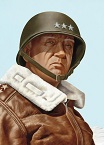Kull
Posts: 2625
Joined: 7/3/2007
From: El Paso, TX
Status: offline

|
quote:
ORIGINAL: jmolyson
Dear Kull:
First of all, you can disagree with my analysis without belittling it. I think you need to get out the house more or maybe eat a bit more fiber.
I'll number these so you can keep up:
(1) In the real world, you often get only "a few sightings". If your enemy is good, and the Japanese were, the U.S. was lucky to get the previous Intel and we were lucky that the radar worked. The work of Ambassador Grew and the Naval Attache in Tokyo, the decryption of some Japanese communications by the cryptologists at Cavite, Pearl and in DC was GOOD.
(2) The Failure of the Navy Department to provided clearer analysis obscured rather than clarified the strategic situation and Japanese intent. Not getting a consolidated intelligence analysis out to the Battle Fleet and CINCUS was a BLUNDER.
(3) The failure to heed the accurate radar warning was due to lack of an established Filter Center to evaluate radar, sound and visual sightings. The Brits had this ready to go in 1939, we could have learned how to build one from them. That was a blunder, compounded by the assignment of an OIC that didn't report the contact up-channel. That was a blunder, especially because the Army was charged with defending the fleet while it was in harbor.
(4) There is no such thing as a "code red" in the military. Also even in peacetime there is no such thing as Sunday off. All the ships in harbor had adequate crews on board to sortie and defend themselves. A Fleet Alert should have issued and an Air Defense Alert by the Army.
(5) Ward was assigned to the 14th Naval District for the express purpose of local defense. She was not a Pacific Fleet asset. The Captain of the USS Ward was not a trigger-happy kid. He graduated from the Academy in 1927, and progressed through several tours of sea duty culminating with command of the Ward. The Ward itself had been on patrol duty and her crew experienced. They were also good shots, hitting the midget submarine with guns and depth charges. AND, Ward was patrolling the harbor entrance to prevent the passage of SUBMARINES, which in this case it did. 14th ND Duty Officer, who knew Ward was on the lookout for submarines, failed to act on Ward's submarine contact report. That was a blunder.
(6) If Washington had given more detailed war warnings, and if the Fleet Problem XXI findings and conclusions would have been more carefully reviewed from November 30, it is likely that the tactical blunders recounted above might have been avoided.
All this of course leads to my "horse-hooey" analysis that there were in fact blunders. Even if the blunders had been avoided, however, the Japanese would have executed the attack as planned. The Battle Fleet would have been crippled.
Your analysis is "horse-hooey" because it assumes that somehow, someway, the military process ACTUALLY IN PLACE on the morning of December 7th could have reacted quickly enough to mitigate the impact of the attack, specifically this statement that YOU made:
quote:
At best an aroused defense could have used a few minutes warning to go to Condition One on the ships making the salvage effort easier.
My entire point is that nations at peace do not react quickly upon finding themselves, suddenly, on the verge of attack. In other words, the "aroused defense" that you postulate simply could not have happened. My initial response was rather tongue-in-cheek, going through the thought process of a hypothetical officer of the time as he considered whether to raise a fleet level alarm. That apparently didn't go over well, so let's go through this in more detail. Not because you are "slow", but to add weight to my argument.
1) DD Ward reported firing upon and sinking a submarine outside the harbor one hour prior to the attack. This message DID reach Admiral Kimmel almost 30 minutes prior to the start of the attack (so your statement that the message was not passed along is incorrect). However, Navy patrols had been on alert for some time, and - as is quite normal when men are keyed up for long periods and looking for something that does not exist - many of them reported "submarine contacts" which turned out to be false. Not surprisingly, this new report was thought to be yet another false sighting (i.e. "the boy who cried wolf"), and accordingly was not taken seriously. Even if it had been, a submarine seen outside the harbor could scarcely be considered an existential threat, and thus not worthy of a fleet-level alert.
2) Which leaves us with the radar sightings, which also occurred about an hour before the attack (although it seems they weren't reported for another 10-15 minutes). These came from a system utilizing technology that the Army command had no prior experience with, and in fact the Oahu SC-270s were only installed in mid-1941. The guys operating this particular system were crackerjack, from what I can tell (and yes that was my MOS, albeit not this model), but both were privates and they made their reports to an off-site lieutenant (those with military experience will understand the rank dynamics at play here) who additionally had been on the job for only 2 days and had no prior experience with radar. But even absent that, he was aware of the impending B-17 arrival and also knew of other aircraft on patrol around the island. It wasn't unreasonable to conclude that the radar guys were seeing something other than a massive Japanese aerial attack. And again, even if it had been reported upwards, nothing suggests that the peacetime Army would take this sketchy information over to the Navy (even ignoring the inter-service disconnects) and ask them to put the fleet on full alert. I think it's worth remembering that even the radar guys didn't know exactly what they were looking at, and called in first simply to report a sizable anomaly. Take off the technology blinders of this era for a moment (i.e. what radar screens "look like"), and examine the attachment showing the actual SC-270 scope that morning (more likely a later reconstruction), and tell me where in there does it scream "incoming Japs!" to the total exclusion of "incoming B-17s"?
As for all your other points, well who knows, but those were NOT in the post I responded to.

 Attachment (1) Attachment (1)
_____________________________
|
 Printable Version
Printable Version















 New Messages
New Messages No New Messages
No New Messages Hot Topic w/ New Messages
Hot Topic w/ New Messages Hot Topic w/o New Messages
Hot Topic w/o New Messages Locked w/ New Messages
Locked w/ New Messages Locked w/o New Messages
Locked w/o New Messages Post New Thread
Post New Thread